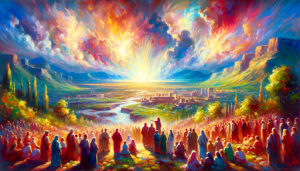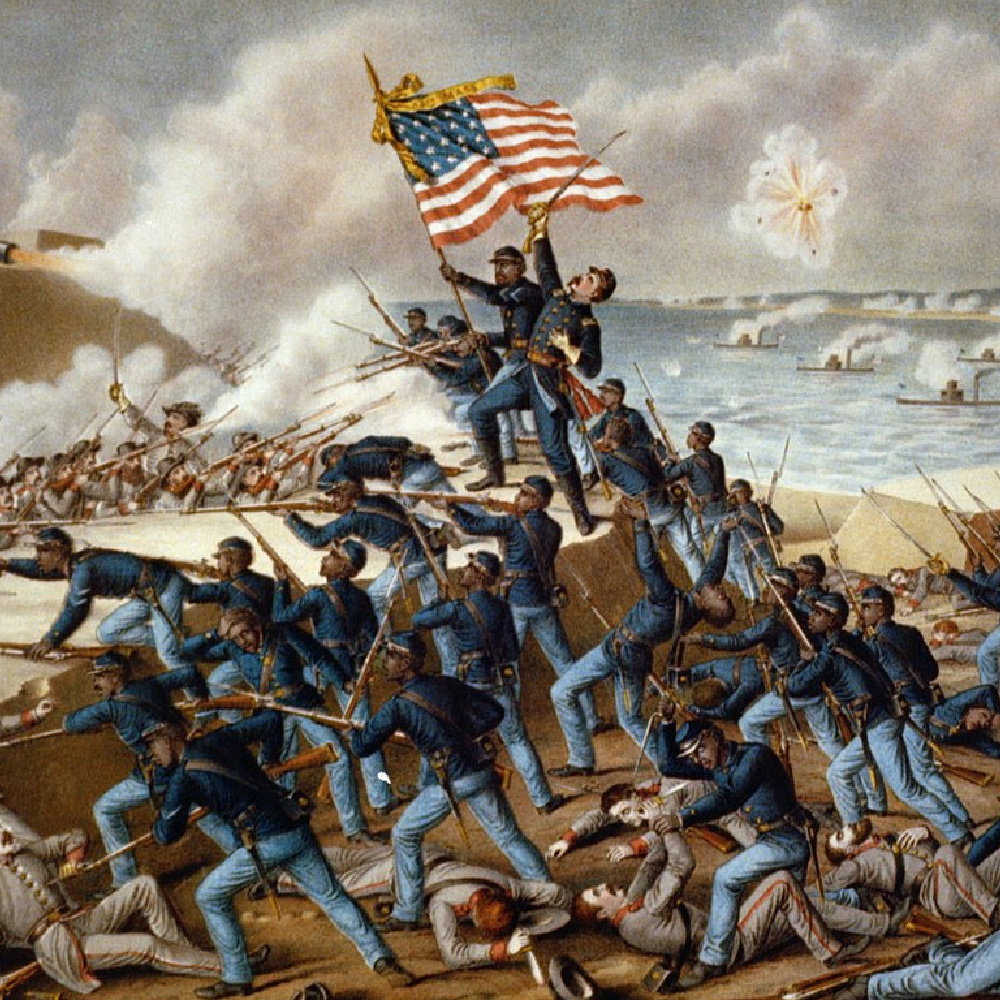It’s the most wonderful time of the year—or at least it’s supposed to be.
When people talk about the “true meaning of Christmas,” most often, they mean things like giving, service, love, and peace. The meanings extracted are the light, joy, and family in our lives right now. These well-meaning interpretations are usually intended as a counterweight to the holiday’s commercial trappings rather than a dedicated pursuit of true meaning. These are all wonderful things, but they overlook the significance of the actual birth of Christ, both to contemporaries of his birth and his modern-day followers.
For a couple of years, I had been feeling like the glitter and shine of the holiday was wearing off. There was always so much to do, and neither Christmas lights in the snow nor Burl Ives on the radio seemed to fill me with joy and wonder like they used to.
Then, in 2021, right before Christmas, my wife suffered a miscarriage, and I lost my job. These back-to-back trials left us reeling, out of breath, and without any clear path forward. It felt cruel that these things had to happen just at the beginning of the Christmas season when instead of sitting on the couch together in the dark, we should have been watching breezy movies about kindness and togetherness or listening to vintage tunes about falling in love.
What if, however, Christmastime was the perfect time to heal from these painful wounds? What if celebrating the birth of Jesus Christ should be more than a light, fun holiday about giving and kindness? Christ’s mission, and so His birth, means much more—joyful, certainly, but the joy of hope in darkness. Christmastime was the perfect time to heal.
Simeon was a just and devout temple attendant during Jesus’ circumcision. Living during the Roman occupation of his religious homeland and under the rule of the corrupt, he had been “waiting for the consolation of Israel.” When the Christ child was presented to him, Simeon celebrated. He saw him as “salvation,” the fulfillment of promise, and a “light” in darkness. Christmastime was the perfect time to heal.
Zacharias, who lost his voice when he didn’t believe his son would herald in the Messiah, had obvious reason to celebrate when Jesus was born—his voice returned—but that wasn’t the reason at the front of his mind—“Blessed be the Lord God of Israel; for he hath visited and redeemed his people … as he spake by the mouth of his holy prophets, which have been since the world began: That we should be saved from our enemies, and from the hand of all that hate us; To perform the mercy promised to our fathers, and to remember his holy covenant; … To give light to them that sit in darkness and in the shadow of death, to guide our feet into the way of peace.”

Circumstances were even darker among the Nephites in the time leading up to His birth. The once-righteous people had become overrun by wickedness to such a great extent that a mob tried to kill the Lamanite prophet Samuel and a conspiracy arose to execute all the believers. Amid all this strife, Samuel foretold the Lord’s coming “to redeem all those who shall believe on His name” (Helaman 14:2).
Indeed, Nephi was so weighed down by the wickedness of his own people and the looming devastation if the plot to murder the faithful was carried out that he spent the entire day praying for deliverance. In response, we have the Lord’s immensely comforting words about His own birth: “Lift up your head and be of good cheer; for behold, the time is at hand, and on this night shall the sign be given, and on the morrow come I into the world, to show unto the world that I will fulfill all that which I have caused to be spoken by the mouth of my holy prophets” (3 Nephi 1:13).
The angel who announced Christ’s birth to the shepherds also announced specific reasons to celebrate, promising “great joy, which shall be to all people.” Then a chorus of heavenly hosts joined, singing, “Glory to God in the Highest, and on earth peace, good will to men.” This reason for celebration may appear to be aligned with the typical “holiday cheer.”
At first, this might appear to be simply a description of the typical “holiday cheer,” but taken in the context of the other thoughts and feelings people had around the time of Christ’s birth, it takes on a much more powerful hue. The promise of peace isn’t just encouragement to be nice to people but assurance that, to hearts in turmoil, peace will come because the Lord is born. “Good will to men” isn’t an ordinary reminder to take care of others; it’s confidence that God sees your trials and is personally invested in your well-being.
Two things stand out in the ways these righteous people celebrated the Lord’s birth. They saw it as a powerful assurance that God remembers His covenants and that He saves His people from the darkness. That is the reason for their joy and celebration.
Early Christians certainly took this meaning of Christmas. The Feast of the Nativity was first celebrated in the 4th century AD—incidentally, during the time the actual Saint Nicholas was alive and serving as Bishop of Myra. The early saints were only a small fraction of the population, and they had endured heavy persecution from Jewish leaders and Roman emperors for centuries. It will get better.
It strikes me that all these different ways that people recognized the Savior’s birth were grounded in the afflictions they faced but focused on the promises for the future. It was not a celebration that He had already saved them; it was an expression of faith in the midst of their trials because they knew He would.
Christmas is not a celebration that looks backward at the past good but looks forward to the salvation that will come.
Two years ago, I had wondered if I was outgrowing Christmas. It seemed to offer me so little and demand from me so much. But when my little family was thrust into difficulties we were not prepared for, I began to understand just how much I needed Christmas.
In the months and years since then, the Lord’s goodwill has kept my family afloat. We were blessed with another job, another child, and a depth of peace throughout that I would never have expected.
This year is hard again in new ways. Some days I just don’t see how it can work out. But that is exactly why I am looking forward so much to Christmas this year. Because it’s not just a fun day with presents and cookies and family and Brenda Lee in the background. It’s a reminder that, no matter how dark it may feel now, Jesus Christ’s birth is a promise to you and to me that it will get better—that He is already in the world for the express purpose of delivering you from whatever keeps you down. That He is the “light which shineth in darkness.”
Christmas means that His covenants will be fulfilled, and your days will grow brighter because of it.
















